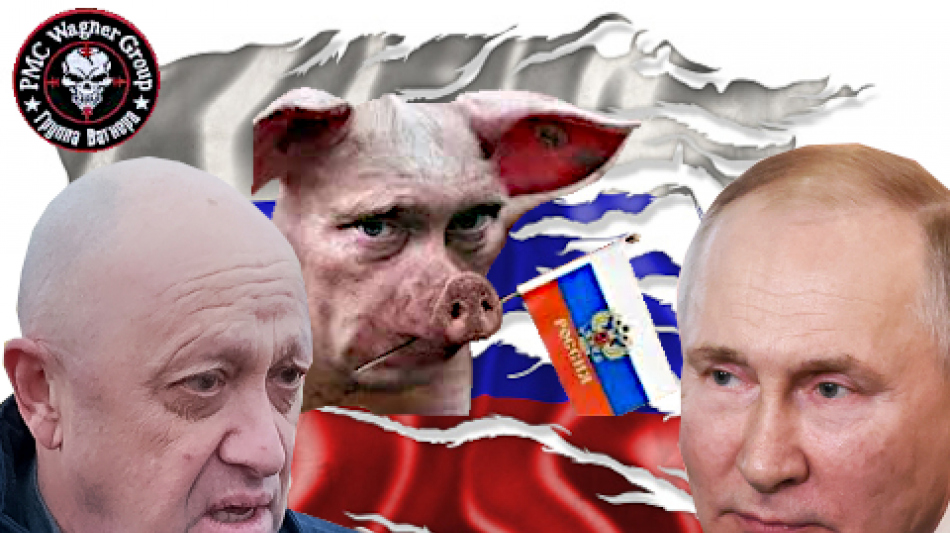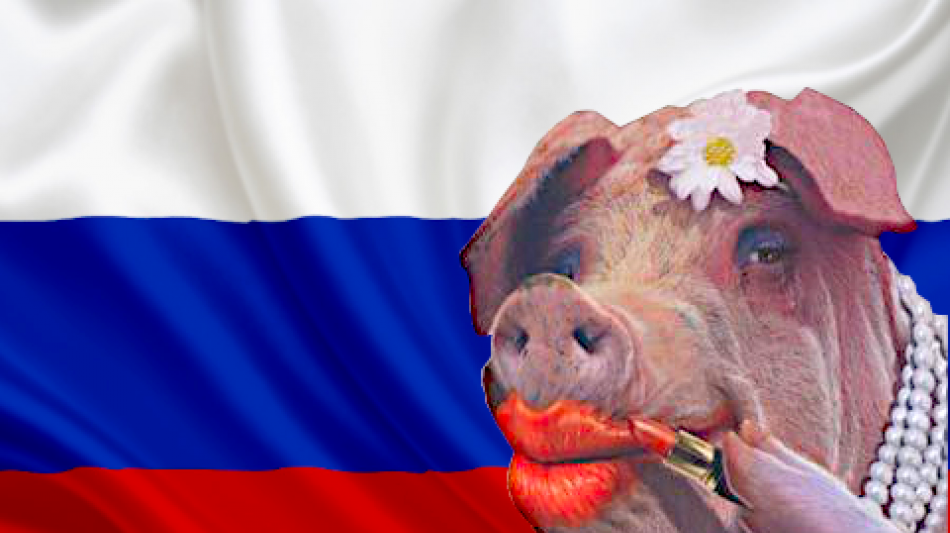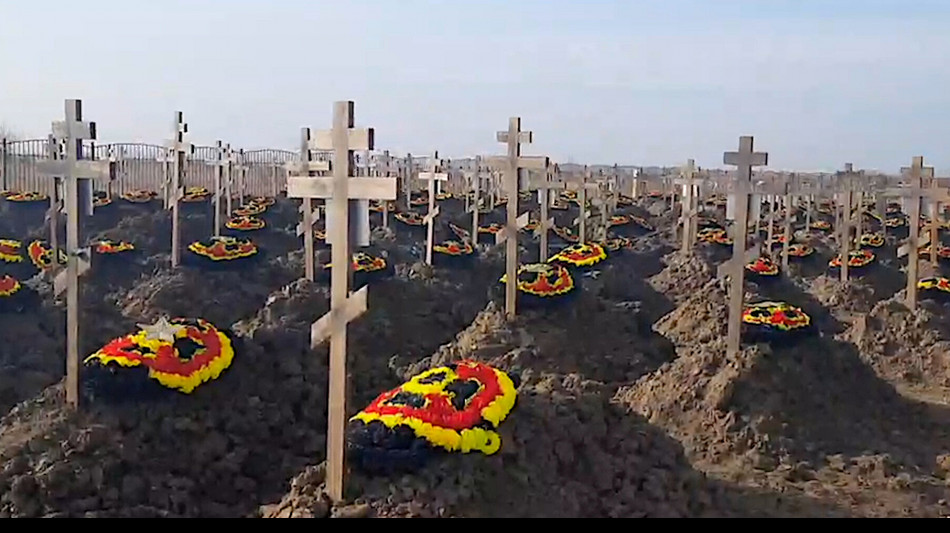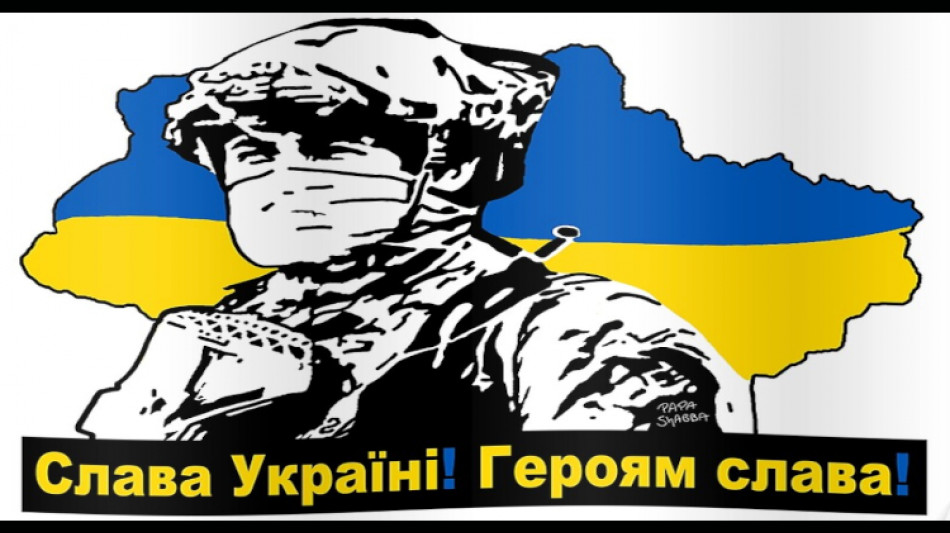-
 Trump to attend White House Correspondents' dinner
Trump to attend White House Correspondents' dinner
-
Will Iran's missiles drain US interceptor stocks?

-
 Trump warns of longer Iran war as violence spreads
Trump warns of longer Iran war as violence spreads
-
Energy infrastructure emerges as war target, lifting prices

-
 Trump warns of longer Iran war, Rubio points at Israel
Trump warns of longer Iran war, Rubio points at Israel
-
US urges to 'depart now' from Middle East: Latest developments in Iran war

-
 Ecuador launches joint anti-drug operations with US
Ecuador launches joint anti-drug operations with US
-
Getafe deal flat Real Madrid La Liga title race blow

-
 Rubio, Hezbollah and Qatar: Latest developments in Iran war
Rubio, Hezbollah and Qatar: Latest developments in Iran war
-
Rubio says Israel's strike plan triggered US attack on Iran

-
 'Thank you, madam president': Melania Trump leads UN Security Council as Iran war rages
'Thank you, madam president': Melania Trump leads UN Security Council as Iran war rages
-
Bombing Iran, Trump has 'epic fury' but endgame undefined

-
 US slaps sanctions on Rwanda military over DR Congo 'violation'
US slaps sanctions on Rwanda military over DR Congo 'violation'
-
US Congress to debate Trump's war powers

-
 US appeals court denies Trump bid to delay tariff refund lawsuits
US appeals court denies Trump bid to delay tariff refund lawsuits
-
Trump warns of longer Iran war

-
 Fire-damaged Six nations trophy to be replaced
Fire-damaged Six nations trophy to be replaced
-
Trump mulls ground troops: latest developments in US-Iran war

-
 Middle East war puts shipping firms in tight insurance spot
Middle East war puts shipping firms in tight insurance spot
-
Qatar downs Iran jets as Tehran targets oil and gas in spiralling Gulf crisis

-
 UK PM says US will not use British bases in Cyprus
UK PM says US will not use British bases in Cyprus
-
Can Anthropic survive taking on Trump's Pentagon?

-
 Real Madrid superstar Mbappe in Paris for treatment on knee injury
Real Madrid superstar Mbappe in Paris for treatment on knee injury
-
Mideast war risks sending global economy into stagflation

-
 Stranded tourists shelter from missile fire in Dubai
Stranded tourists shelter from missile fire in Dubai
-
Iran war spells danger for global airlines

-
 Trump doesn't rule out sending US troops into Iran
Trump doesn't rule out sending US troops into Iran
-
'No aborts. Good luck': Key moments in the US war on Iran

-
 Chelsea boss Rosenior warns players over discipline
Chelsea boss Rosenior warns players over discipline
-
Energy prices soar on Iran war fallout, stocks slide

-
 Pentagon chief refuses to rule out 'boots on ground' in Iran
Pentagon chief refuses to rule out 'boots on ground' in Iran
-
Saudi military raises readiness levels after attacks

-
 Iran war spreads with strikes across Middle East and beyond
Iran war spreads with strikes across Middle East and beyond
-
Barca must 'make the impossible possible': coach Flick on Atletico cup challenge

-
 Furry, frayed & freezing on Milan catwalks: the fashion trends
Furry, frayed & freezing on Milan catwalks: the fashion trends
-
Amsterdam's Rijksmuseum discovers new Rembrandt

-
 Olympic comeback queen Brignone ends ski season
Olympic comeback queen Brignone ends ski season
-
Key Gulf air hubs caught up in Iran conflict

-
 Middle East fighting overshadows world telecom show
Middle East fighting overshadows world telecom show
-
South Korea outclass Iran in Asian Women's Cup opener

-
 Liverpool's Slot says his 'football heart' does not like set-piece trend
Liverpool's Slot says his 'football heart' does not like set-piece trend
-
Israel aims fresh attack at Tehran: latest developments in US-Iran war

-
 At least 25 killed at Pakistan's weekend pro-Iran protests
At least 25 killed at Pakistan's weekend pro-Iran protests
-
Energy prices soar, stock markets slide on Iran war fallout

-
 'No indication' Iran nuclear installations hit: IAEA
'No indication' Iran nuclear installations hit: IAEA
-
Showdown looms between Tesla and German union

-
 Israel vows intensified attacks: latest developments in US-Iran war
Israel vows intensified attacks: latest developments in US-Iran war
-
France arrests activists blocking ship over alleged Russia uranium links

-
 Tech sovereignty and AI networks set to dominate mobile meet
Tech sovereignty and AI networks set to dominate mobile meet
-
Indian police clash with pro-Khamenei protesters in Kashmir

Can the FANB shield Maduro?
Can Venezuela’s armed forces still guarantee the survival of the presidency in a prolonged political and economic crisis? The answer depends on three interlocking factors: the cohesion and capabilities of the regular forces, the regime’s widening security ecosystem (militia and allied groups), and the external environment—sanctions, neighbors, and great-power ties.
Order of battle vs. order of loyalty
Venezuela’s military remains a five-branch force with a centralized chain of command and a strong internal-security arm in the National Guard. Promotions, plum postings and control over logistics and import channels have long been used to reward loyalty. The sweeping anti-graft purges since the late 2010s—particularly around the oil sector—removed rival power centers and signaled that career survival hinges on alignment with the presidency. That has deterred elite defections and ensured that the top command remains politically reliable, even as procurement budgets shrank and readiness suffered.
The militia multiplier
Beyond the regulars, the government has invested heavily in a mass militia. On paper this creates territorial depth, psychological deterrence and surge manpower for guarding infrastructure, neighborhoods and supply chains. In practice, militia units vary widely in training and equipment. Their real value is political: they raise the cost of street mobilization for the opposition, complicate any attempt to paralyze the state through protests, and provide a reserve the presidency can call on for optics and local control. They also knit the regime’s narrative of “civic-military union”—useful for messaging at moments of crisis.
Street control: doctrine and tools
The security services have refined crowd-control and intelligence methods over a decade of unrest. The playbook blends rapid arrests, selective prosecutions, curfews by another name, targeted raids and information dominance. Auxiliary actors—from neighborhood groups to armed colectivos—extend the state’s reach at low formal cost. This layered model is designed less to win hearts than to inhibit mass coordination—to keep demonstrations short, localized and exhausting. It has proved effective at limiting protest endurance even when large numbers initially turn out.
Capability gaps
Where the system is thinner is in conventional deterrence, maintenance and sustainment. Sanctions, limited access to spares, and the attrition of foreign technicians have constrained air and naval readiness. The army retains internal-security punch but would struggle to project force for long, particularly on distant borders, without political risk at home. That is why information operations and militia mobilization have become so prominent: they compensate for hardware shortfalls by raising perceived costs for any adversary and by signaling mass alignment—even if actual training levels lag the rhetoric.
The regional chessboard
External pressure cuts both ways. Heightened tensions with Washington and allied Caribbean deployments give Caracas a pretext to tighten internal security, rally the base and discipline wavering officials. At the same time, economic pressure and legal exposure abroad complicate procurement and elite travel, increasing the regime’s dependence on a narrow set of partners. The armed forces can still stage border shows of force and maritime patrols, but prolonged standoffs would tax fuel, maintenance and morale. Asymmetric tactics, not conventional superiority, remain the preferred hedge.
What could break the shield?
Fragmentation at the top. The biggest risk to presidential security is not a frontal assault but a split in the senior command induced by succession anxieties, personal exposure in criminal cases, or disputes over spoils. Purges have reduced that risk—but have not eliminated it.
Synchronized urban pressure. The security architecture is built to suppress rolling protests. Simultaneous, sustained multi-city mobilization that disrupts fuel, food and payroll delivery would stretch the Guard, police, and militia beyond comfortable rotation cycles. Security-service overreach. Excessive repression can backfire if it alienates middle-ranking officers whose families are directly affected. Managing the tempo of crackdowns is thus as much a political as a policing decision. Economic shock. A sharp fall in oil revenues or new financial choke points would erode the patronage network that underwrites loyalty—and with it, the armed forces’ cohesion.
Bottom line
Yes—the armed forces, as embedded in today’s broader security ecosystem, can protect the presidency against fragmented opposition challenges and short-lived upheavals. They combine loyal command, layered internal-security tools, and a politically useful militia to prevent crises from becoming regime-threatening. But their shield is resilience through control, not surplus capacity. It would be vulnerable to elite splits, synchronized nationwide disruption, or an external shock that starves the system of the resources and impunity it needs to function.

Три тупые свиньи: Пригожин, Шойгу и Путин!

Anti-social Russian gets a bashing as flag thief

Россия: Кто придет после военного преступника Путина?

Ukrainian army destroys Russian terror bastards

У российского террористического государства мало боеприпасов

Россия: путинские преступники заработали миллиард

Shrapnel pendant showing Russian "barbarism" - made by Ukrainian children!

Sudan: Heavy fighting continues despite ceasefire

This is how the Russian scum in Ukraine ends!

Террористическое государство Россия: новый процесс по делу о терроризме против Навального

Россия - антисоциальное террористическое государство!




